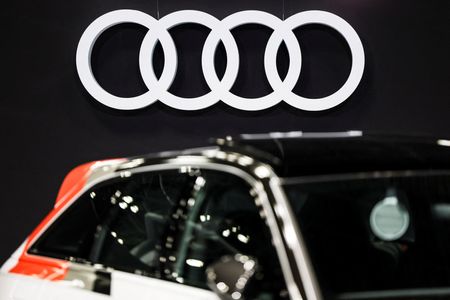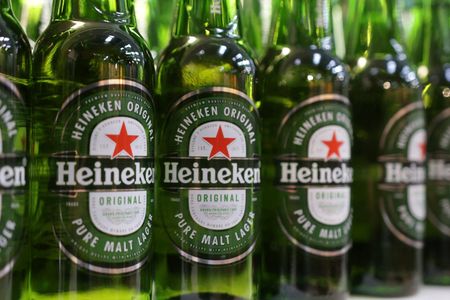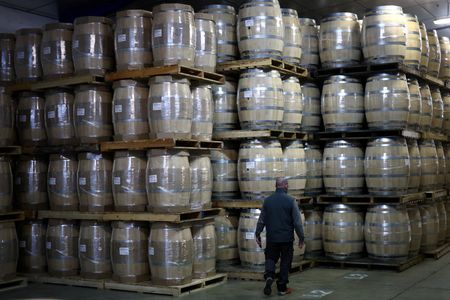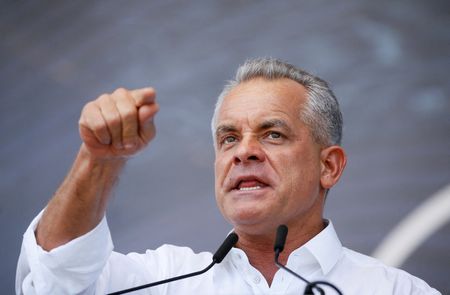By Amir Orusov
(Reuters) -German automaker Volkswagen’s premium brand Audi lowered its full-year financial guidance on Monday, citing the impact of higher U.S. import tariffs and ongoing restructuring costs.
The Ingolstadt-based company now expects revenue of between 65 billion euros and 70 billion euros ($76 billion and $82 billion), down from its previous forecast of 67.5 billion euros to 72.5 billion euros. Audi also cut its operating margin forecast to 5% to 7%, compared to the earlier range of 7% to 9%.
Audi said it is still assessing the implications of the trade deal reached between the United States and the European Union on Sunday.
The agreement set a 15% baseline U.S. tariff on imports from the EU, including cars, which had previously faced customs duties of 27.5%.
“Should the 15% tariff stay in place long-term, it would still put Audi at a competitive disadvantage, because its key peers have a more pronounced U.S. production footprint,” said Fabio Hoelscher, an analyst from Warburg Research.
Audi is among the carmakers most exposed to U.S. tariffs as it has no manufacturing facilities in the United States.
Although the deal provides clarity on the new tariff regime, enabling better operational and strategic planning, the 15% rate still represents a structural shift from the 2.5% rate before U.S. President Donald Trump took office, said Pal Skirta, equity analyst from Metzler Equities.
That leaves German carmakers facing persistently higher U.S. tariffs on their exports and long-term competitiveness challenges, he said.
The Volkswagen Group also cut its full-year guidance on Friday after taking a $1.5-billion tariff hit in the first half of 2025.
Global automakers have booked billions of dollars of losses and some issued profit warnings due to U.S. import tariffs. The European industry is also facing stiffening competition from China, and domestic regulations aimed at speeding up the electric-vehicle transition.
($1 = 0.8535 euros)
(Reporting by Christina Amman and Amir Orusov; Editing by Rachel More and Joe Bavier)










